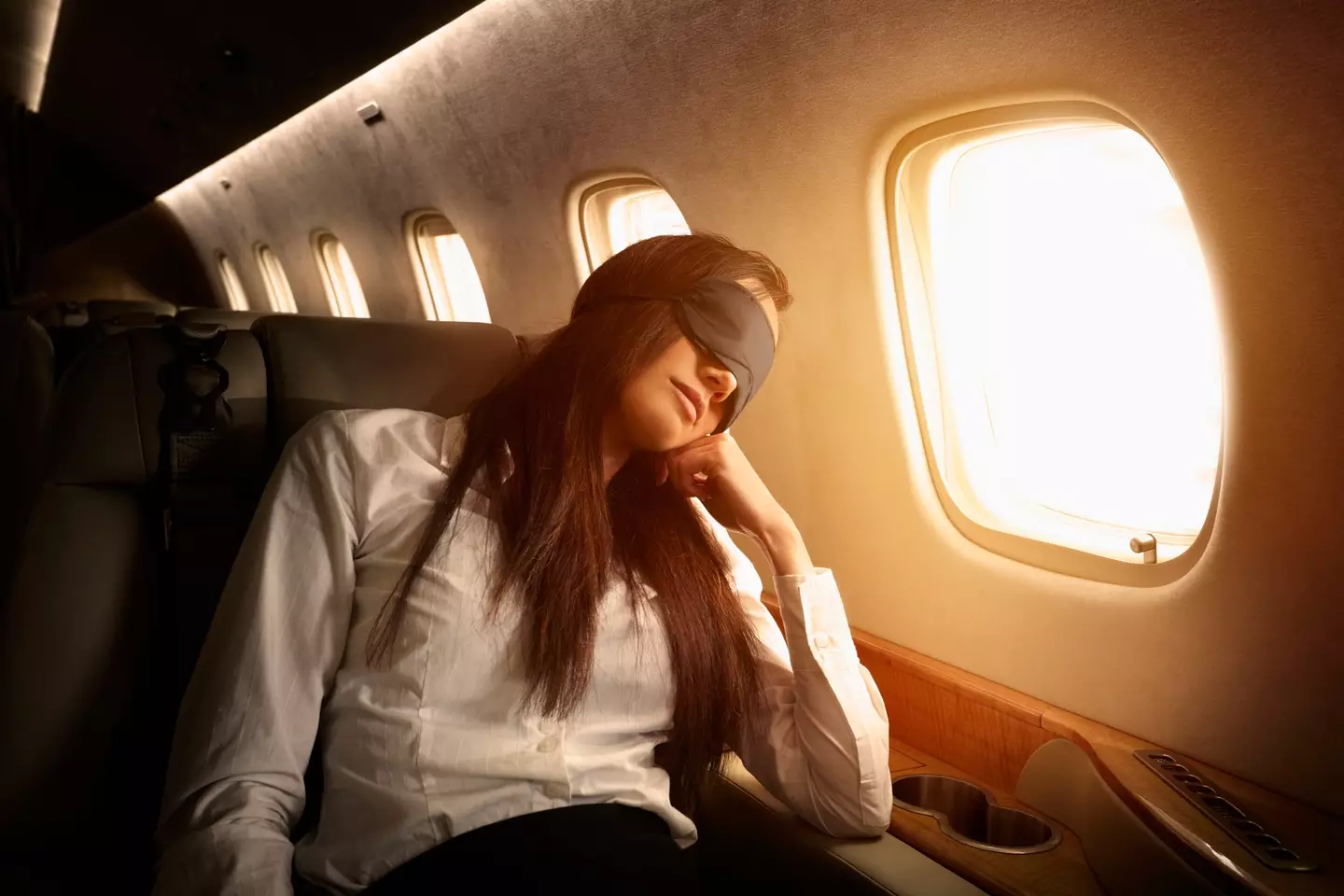
Whether you're an avid jet-setter or someone who tries to avoid plane travel like the plague - I'm sure we can all relate to that post-flight feeling whenever we touch down.
Well, there's actually a whole lot more than just feeling groggy and battling with jet-lag as doctors have revealed how flying has a huge effect on certain parts of your body.
Dr Gill Jenkins warned: "Sitting for eight hours or more can have serious adverse effects on your health, such as heart and respiratory health, as well as your muscles and joints."

Advert
So, how can flights affect your body and what can you do to try and combat it?
Brain
Dr Simon Theobalds, GP at Pall Mall Medical, explained: "Changes in sleep patterns caused by time zone differences can affect the quality and quantity of sleep, which can have an impact on cognitive functions and mood.
"Low humidity levels can also lead to headaches, dizziness, and cognitive impairment."
He added: "The lower oxygen levels in an airplane cabin may also impact cognitive performance, resulting in symptoms like forgetfulness and difficulty concentrating. For long flights, especially for anxious flyers, stress and anxiety can be triggered, which can affect cognitive functions and overall wellbeing."
Now, while jet-lag is a massive pain, it is only temporary and can often be quickly remedied once you've adjusted to a new time zone.
However, to help speed up the process, be sure to stay hydrated and stick to a 'healthy sleep schedule'.

Heart
Dr Jenkins, an advisor to Deep Heat, Deep Freeze and Deep Relief, explained: "Flying long haul can affect breathing, causing shortness of breath and sometimes chest discomfort.
"People at highest risk of heart issues on a plane are those who already have cardiovascular disease."
She added that dehydration, changing cabin air pressure and low oxygen concentration can also contribute to you breathing in less oxygen - which isn't exactly ideal when you're planted in your seat for extended periods of time.
On top of all of that, flyers can also be at risk of deep vein thrombosis (DVT) and blood clots.
"Blood clots can occur for up to one month after flying, so be alert to symptoms such as swollen or painful legs, especially the calf, and breathing difficulties (clots can occur on the lungs too)," she warned.
So, to reduce risk, be sure to - again - stay well hydrated and don't drink alcohol during your flight.
Also try to stretch and move around as much as possible when on board.

Stomach
A change in humidity could also impact your stomach with Dr Theobalds explaining: "Aeroplane cabins have low humidity levels, which can cause dehydration and lead to digestive issues such as constipation and discomfort. The change in cabin pressure can also cause gas expansion in the stomach, leading to bloating or discomfort.
"Prolonged sitting during long flights can contribute to sluggish digestion and constipation."
Flying can also impact your body clock which can have a knock-on effect on your
digestive system too, leading to irregular bowel movements and appetite changes.
Water is clearly key yet again, with Dr Theobalds recommending staying hydrated and choosing light meals, while also moving around the cabin a lot.
Eyes, nose and mouth
We've all walked off a flight feeling slightly congested with itchy eyes and a scratchy throat.
According to Dr Jenkins, this is due to changes in cabin pressure, altitude and air quality.
She added: "Affecting the nasal passages, sinus pain is common on long haul flights, particularly if you already have a cold or other respiratory tract issue, which affect the way the sinuses and nasal passages can equalise pressures following changing cabin pressure - resulting in pain across the eyes, forehead and cheek bones, especially on descent."
So, in order to dodge this - be sure to chew some gum or yawning during take-off and landing and - yet again - drinking plenty of water.
 Flavia Morlachetti / Getty Images
Flavia Morlachetti / Getty Images

Skin
Because planes have recirculated air and low humidity, flyers can often feel their skin getting dry and tight which could exacerbate conditions such as eczema or psoriasis.
The dry air can also clogs pores - something not really ideal for those with acne-prone skin.
"At higher altitudes, your exposure to UV rays increases," Dr Theobalds explained. "Although aeroplane windows block most UVB rays, UVA rays can still penetrate, potentially causing skin damage over time.
"To combat all this, moisturise your skin, avoid heavy make-up, and use a good-quality SPF."
Limbs and muscles
And, last but by no means least, is limbs and muscles.
Dr Jenkins said: "Sitting down for several hours on a long-haul flight without much movement may cause muscles to stiffen and could result in joint and back problems and stiffness.
"During the flight, try to get up, move about and stretch once an hour. Once you have landed, it's really important to get your body moving as soon as you can."
Well, the more you know.
Topics: Health, Travel, Plane Etiquette